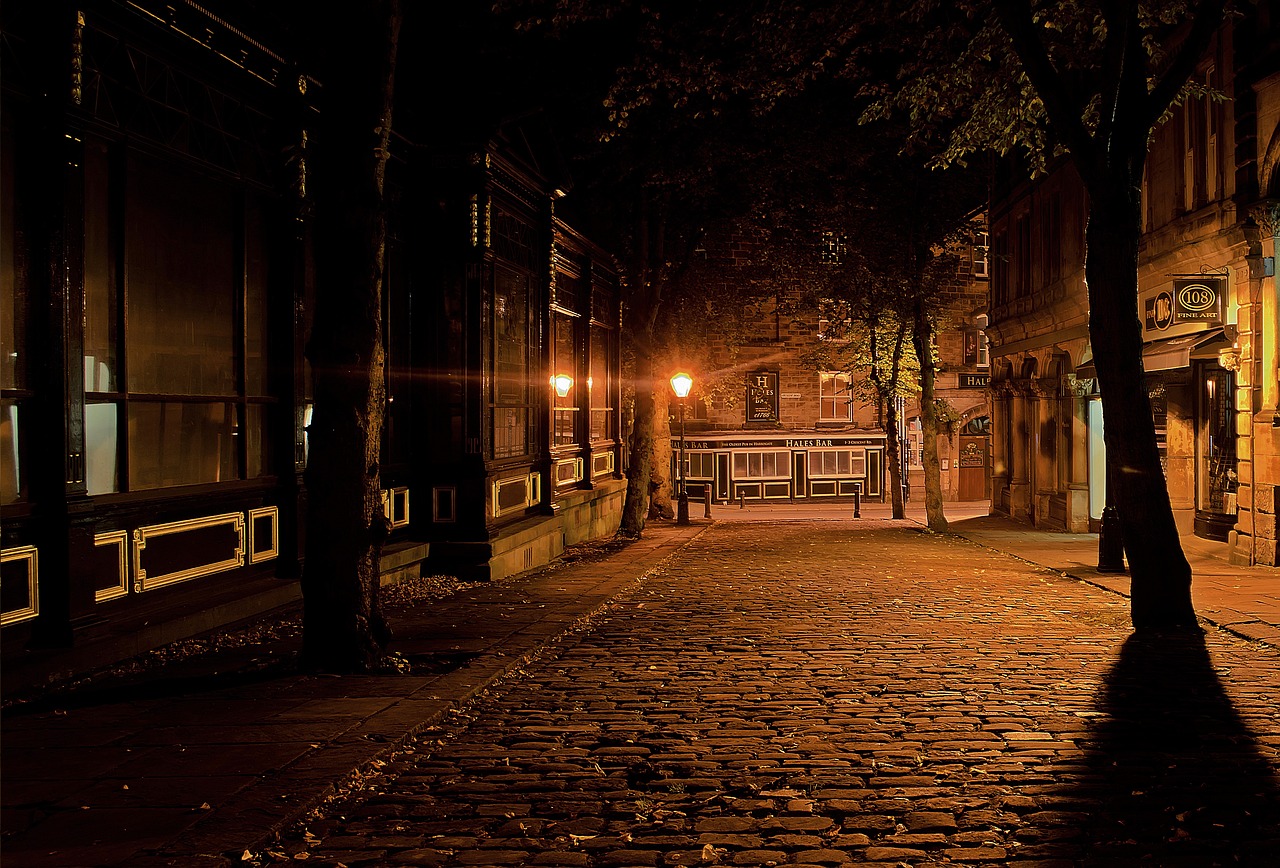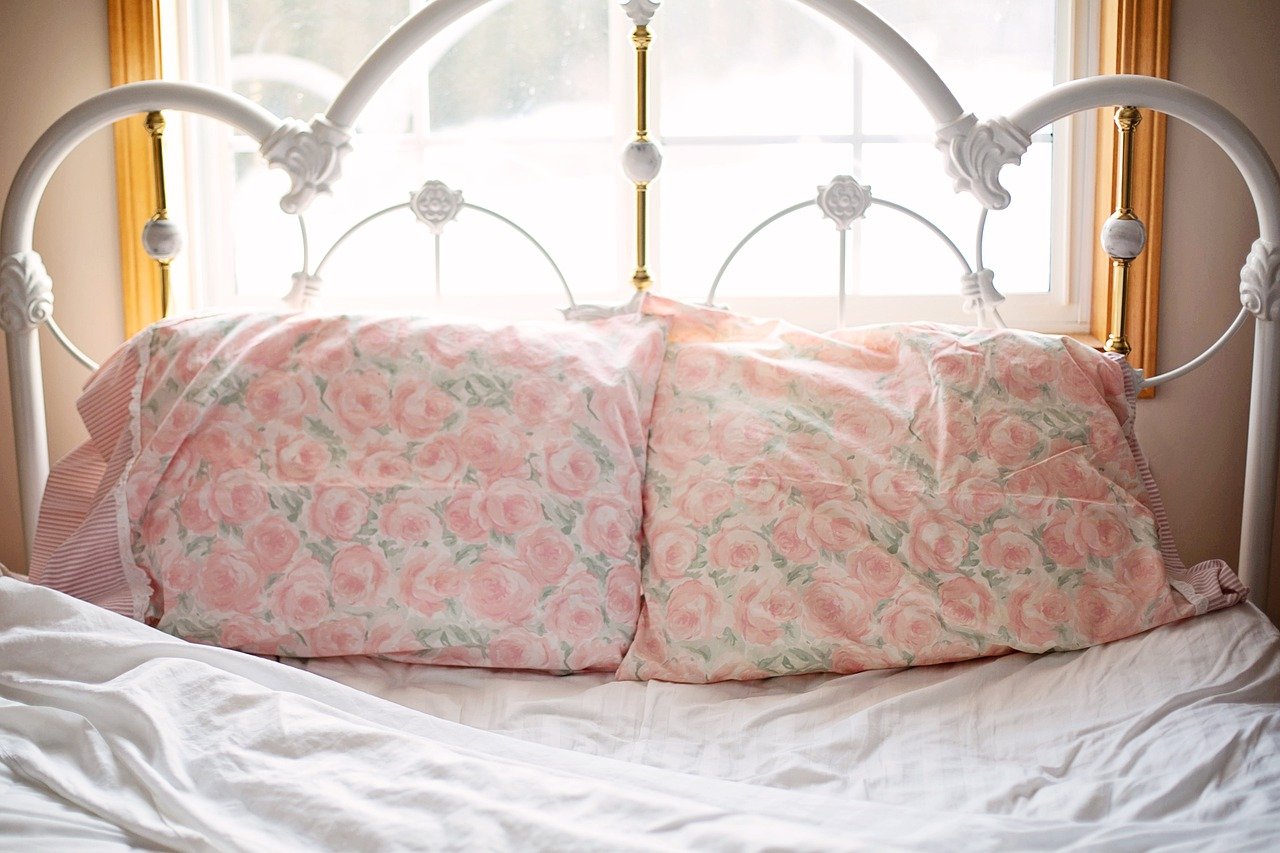How to Create a Relaxing Evening Routine
Creating a relaxing evening routine is essential for unwinding after a long day and preparing your mind and body for a restful night's sleep. By following a few simple tips and strategies, you can design a calming and rejuvenating routine that promotes relaxation and overall well-being.
To set the mood for a peaceful evening, start by creating a soothing atmosphere in your home. Dim the lights, light some candles, and play soft music to signal to your brain that it's time to relax. These simple gestures can help you transition from the busyness of the day to a more tranquil state of mind.
It's important to unplug from technology at least an hour before bed. Screens emit blue light, which can disrupt your sleep cycle by interfering with the production of melatonin, the hormone that regulates sleep. By disconnecting from electronic devices, you can reduce blue light exposure and signal to your body that it's time to wind down.
Practicing mindfulness is another effective way to promote relaxation in the evening. Engage in activities like meditation, deep breathing exercises, or progressive muscle relaxation to calm your mind and release tension from your body. These practices can help reduce stress and anxiety, allowing you to prepare for a peaceful night's sleep.
Pampering yourself with self-care rituals can also enhance your evening routine. Indulge in a warm bath, follow a skincare routine, or engage in gentle stretching exercises to pamper your body and promote relaxation. Taking time to care for yourself can have a positive impact on your overall well-being and help you unwind after a busy day.
Enjoying a hobby is a great way to shift your focus away from daily stressors and engage in activities that bring you joy. Whether it's reading a book, painting, gardening, or any other hobby you enjoy, spending time on these activities can help you relax and recharge in the evening.
Scheduling quiet time for reflection or journaling can also be beneficial for promoting mental clarity and relaxation before bedtime. Taking a few moments to process your thoughts and emotions can help you unwind and prepare your mind for a restful night's sleep.
Planning for tomorrow by organizing your tasks and creating a to-do list can help clear your mind and alleviate any worries or anxieties about the day ahead. By setting priorities and establishing a plan, you can feel more prepared and relaxed, allowing you to drift off to sleep more easily.
Avoiding heavy meals and caffeine in the evening is crucial for promoting better sleep quality. Opt for light, easily digestible dinners and limit your caffeine intake to prevent digestive discomfort and sleep disturbances. Making mindful choices about your evening diet can have a significant impact on the quality of your sleep.
Establishing a bedtime routine that includes calming activities like reading a book, sipping herbal tea, or practicing gentle yoga can signal to your body that it's time to wind down and prepare for sleep. Consistency is key when it comes to bedtime routines, so try to engage in the same activities each night to create a sense of familiarity and relaxation.

Set the Mood
Discover tips and strategies for designing a calming and rejuvenating evening routine to unwind and prepare for a restful night's sleep.
Create a soothing atmosphere by dimming lights, lighting candles, and playing soft music to signal to your brain that it's time to relax. By setting the mood in your environment, you can effectively transition from the hustle and bustle of the day to a tranquil state of mind. Imagine it as creating a serene oasis in the midst of a chaotic world, where you can escape and find peace.

Unplug from Technology
When it comes to creating a relaxing evening routine, one crucial step is to unplug from technology. In today's digital age, we are constantly bombarded with screens emitting blue light, which can interfere with our natural sleep-wake cycle. By disconnecting from electronic devices at least an hour before bedtime, you give your brain the signal that it's time to wind down and prepare for rest.

Practice Mindfulness
Discover tips and strategies for designing a calming and rejuvenating evening routine to unwind and prepare for a restful night's sleep.
Mindfulness is a powerful practice that can help calm your mind and reduce stress before bedtime. Engaging in mindfulness activities like meditation or deep breathing exercises can have a profound impact on your overall well-being. By focusing on the present moment and letting go of worries about the past or future, you can create a sense of inner peace and tranquility.

Pamper Yourself
After a long day, it's essential to take some time to pamper yourself and unwind. Indulging in self-care rituals can do wonders for both your body and mind, helping you relax and rejuvenate before bedtime. One way to pamper yourself is by treating your skin to a nourishing skincare routine. Consider using gentle cleansers, hydrating serums, and luxurious moisturizers to pamper your skin and promote a healthy glow.
Another way to pamper yourself is by taking a warm bath. Adding some Epsom salts or essential oils to your bathwater can create a spa-like experience at home. The warm water helps relax your muscles, while the soothing scents can calm your mind and reduce stress. You can also light some scented candles or play soft music to enhance the ambiance and create a serene atmosphere.
Don't forget the power of gentle stretching to pamper your body. Spending a few minutes doing simple stretches can help release tension and improve flexibility. Focus on areas that feel tight or tense, such as your neck, shoulders, and lower back. Stretching before bed can also help prepare your body for sleep and promote relaxation.
Lastly, pampering yourself can also involve enjoying a cup of herbal tea. Herbal teas like chamomile, lavender, or peppermint have calming properties that can help you unwind and de-stress. Sipping on a warm cup of tea while reading a book or listening to soothing music can create a peaceful moment of relaxation before you head to bed.

Enjoy a Hobby
Engaging in a hobby is a fantastic way to unwind and escape the stresses of daily life. Whether it's diving into a captivating book, picking up a paintbrush, or tending to your garden, hobbies offer a therapeutic outlet for relaxation and creativity. Imagine immersing yourself in a world where time seems to stand still, allowing you to focus solely on the activity at hand. Just like a painter loses themselves in the strokes of a brush or a gardener finds peace in nurturing plants, indulging in a hobby can transport you to a serene mental space where worries fade away. It's a delightful way to recharge your mind and soul, providing a much-needed break from the hustle and bustle of the day.

Schedule Quiet Time
Discover tips and strategies for designing a calming and rejuvenating evening routine to unwind and prepare for a restful night's sleep.
When it comes to winding down for the night, scheduling quiet time can be a crucial step in promoting relaxation and mental clarity. By allocating a few minutes for quiet reflection or journaling, you give yourself the opportunity to process your thoughts and emotions before bedtime. This practice can help declutter your mind, allowing you to let go of any lingering stress or worries from the day.
Imagine this quiet time as a peaceful sanctuary where you can retreat from the noise and chaos of daily life. It's a moment to tune in to your inner self, listen to your thoughts, and simply be present in the moment. Whether you prefer to sit in silence, write in a journal, or meditate, this dedicated time can serve as a gentle transition into a state of relaxation before you head to bed.
Consider creating a cozy corner in your home where you can escape for a few minutes of solitude. Surround yourself with items that bring you comfort, such as soft pillows, a warm blanket, or a scented candle. This space should invite tranquility and reflection, allowing you to unwind and let go of the day's tensions.
During this quiet time, you can also engage in deep breathing exercises to center yourself and release any pent-up tension. Focus on your breath as it flows in and out, allowing each inhale and exhale to calm your mind and body. By practicing mindfulness in these moments of solitude, you can cultivate a sense of peace and serenity that will carry you into a restful night's sleep.
Remember, scheduling quiet time is not just about finding a few spare minutes in your day; it's about prioritizing your mental well-being and creating a space for introspection and self-care. By incorporating this practice into your evening routine, you can set the stage for a peaceful and rejuvenating night ahead.

Plan for Tomorrow
Planning for tomorrow is a crucial step in creating a relaxing evening routine. By organizing your tasks and setting priorities for the next day, you can ease your mind and prepare for a restful night's sleep. One effective way to plan for tomorrow is by creating a to-do list. Jot down the tasks you need to accomplish, breaking them down into manageable steps. This not only helps you stay organized but also prevents you from feeling overwhelmed in the morning.
Another strategy is to set priorities for the following day. Identify the most important tasks that need to be completed and allocate time slots for them. By focusing on essential tasks first, you can ensure that you tackle the most critical items efficiently. Prioritizing your to-do list can also help you avoid procrastination and stay on track with your goals.
Furthermore, visualizing your day ahead can be beneficial. Take a moment to mentally plan out how you envision your day unfolding. This mental rehearsal can help you anticipate any challenges or obstacles that may arise, allowing you to prepare contingency plans in advance. By mentally preparing for the day ahead, you can approach it with a sense of clarity and purpose.
Incorporating planning for tomorrow into your evening routine not only enhances productivity but also promotes a sense of calm and control. By taking proactive steps to prepare for the day ahead, you can reduce anxiety and ensure a smoother transition from evening to bedtime. Remember, a well-planned tomorrow starts with a well-prepared tonight.

Avoid Heavy Meals and Caffeine
When it comes to creating a relaxing evening routine, one crucial aspect to consider is avoiding heavy meals and caffeine close to bedtime. Consuming heavy, rich foods or caffeine in the evening can lead to digestive discomfort and disrupt your sleep quality, making it harder to unwind and prepare for a restful night's sleep.
Opting for light and easily digestible dinners can help prevent indigestion and discomfort that may keep you awake at night. Incorporating foods that are gentle on the stomach, such as lean proteins, vegetables, and whole grains, can promote better digestion and contribute to a more peaceful night's rest.
Similarly, limiting caffeine intake in the evening is essential for a calming bedtime routine. Caffeine is a stimulant that can interfere with your body's natural sleep-wake cycle, making it harder to fall asleep and stay asleep throughout the night. Choosing decaffeinated options or switching to herbal teas in the evening can help reduce the risk of caffeine-induced sleep disturbances.

Establish a Bedtime Routine
Establishing a bedtime routine is crucial for signaling to your body that it's time to wind down and prepare for a restful night's sleep. Consistency is key in training your body to recognize the cues that bedtime is approaching. By engaging in calming activities before bed, you can help relax your mind and body, making it easier to drift off into a peaceful slumber.
One effective way to establish a bedtime routine is by incorporating activities that promote relaxation and reduce stress. For example, reading a book can help shift your focus away from the day's worries and prepare your mind for rest. Sipping on herbal tea with calming properties, such as chamomile or lavender, can also aid in creating a sense of tranquility before bedtime.
In addition to calming activities, gentle yoga poses or stretching exercises can help release tension from your body, promoting physical relaxation. These gentle movements can signal to your muscles that it's time to unwind, making it easier to transition into a state of restfulness.
Creating a cozy sleep environment is another essential aspect of a bedtime routine. Ensure your bedroom is conducive to sleep by keeping it dark, quiet, and at a comfortable temperature. Investing in a comfortable mattress and pillows can also enhance your sleep quality, allowing you to wake up feeling refreshed and rejuvenated.
Remember, the goal of a bedtime routine is to prepare your mind and body for sleep, so avoid engaging in stimulating activities close to bedtime. Limit screen time and exposure to bright lights, as these can interfere with your body's natural sleep-wake cycle. By establishing a consistent bedtime routine, you can improve the quality of your sleep and wake up feeling more energized and alert.
Frequently Asked Questions
- What are the benefits of having a relaxing evening routine?
Having a relaxing evening routine can help you unwind, reduce stress, and prepare your body and mind for a restful night's sleep. It can improve your sleep quality, promote relaxation, and enhance overall well-being.
- How can setting the mood help in creating a relaxing evening routine?
Setting the mood with dim lighting, soothing music, and calming scents can signal to your brain that it's time to relax, helping you transition from a busy day to a peaceful evening. It can create a tranquil atmosphere conducive to unwinding and destressing.
- Why is it important to unplug from technology before bedtime?
Disconnecting from screens before bed is essential to reduce blue light exposure, which can interfere with your body's natural sleep-wake cycle. Avoiding technology allows your brain to relax and prepare for a restful night's sleep.
- How does practicing mindfulness contribute to a relaxing evening routine?
Engaging in mindfulness activities like meditation or deep breathing exercises can help calm your mind, reduce anxiety, and promote a sense of peace before bedtime. Mindfulness can enhance relaxation and improve sleep quality.



















